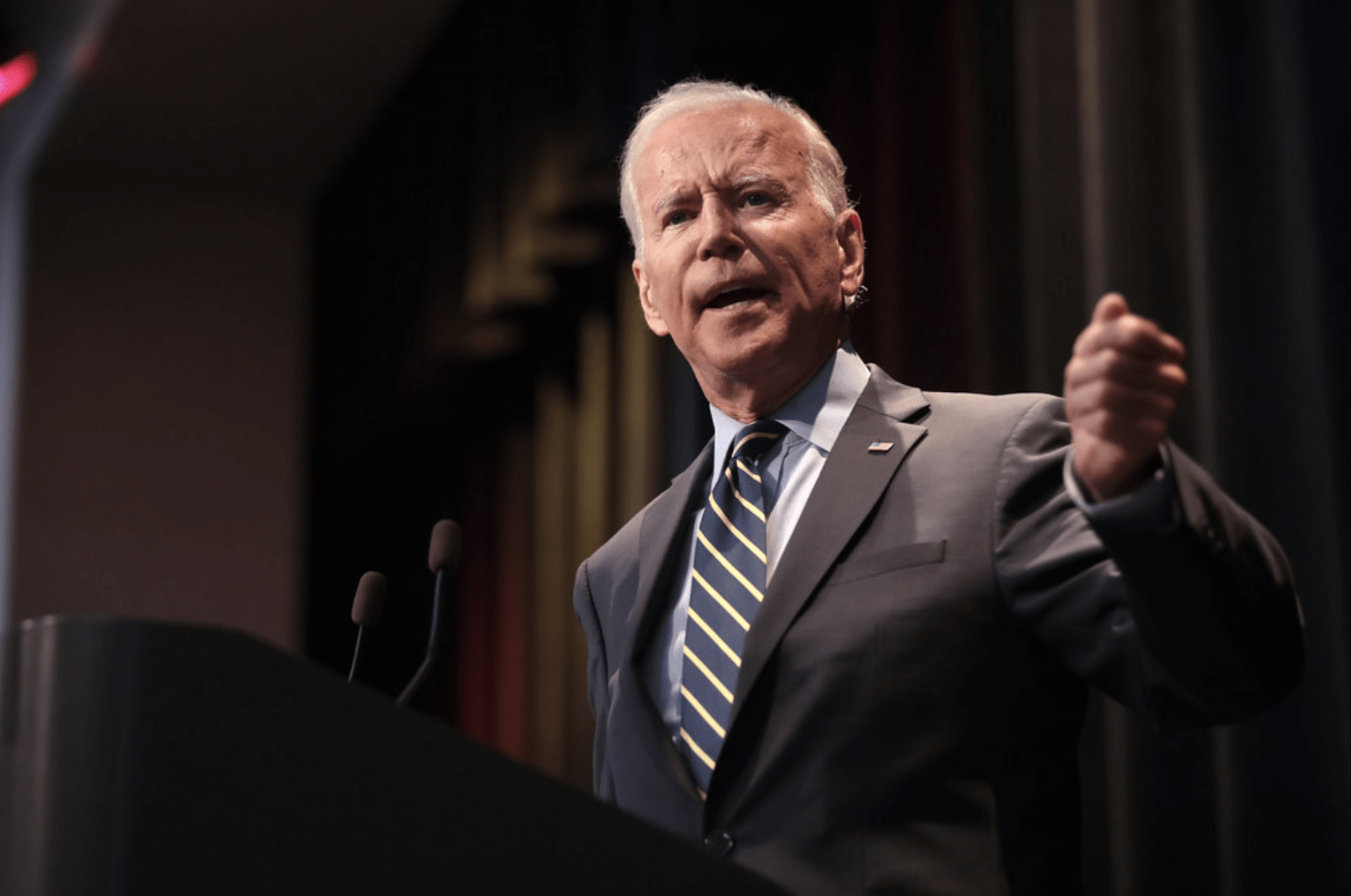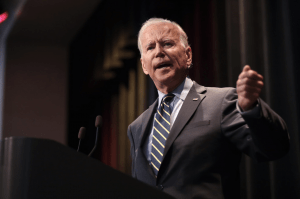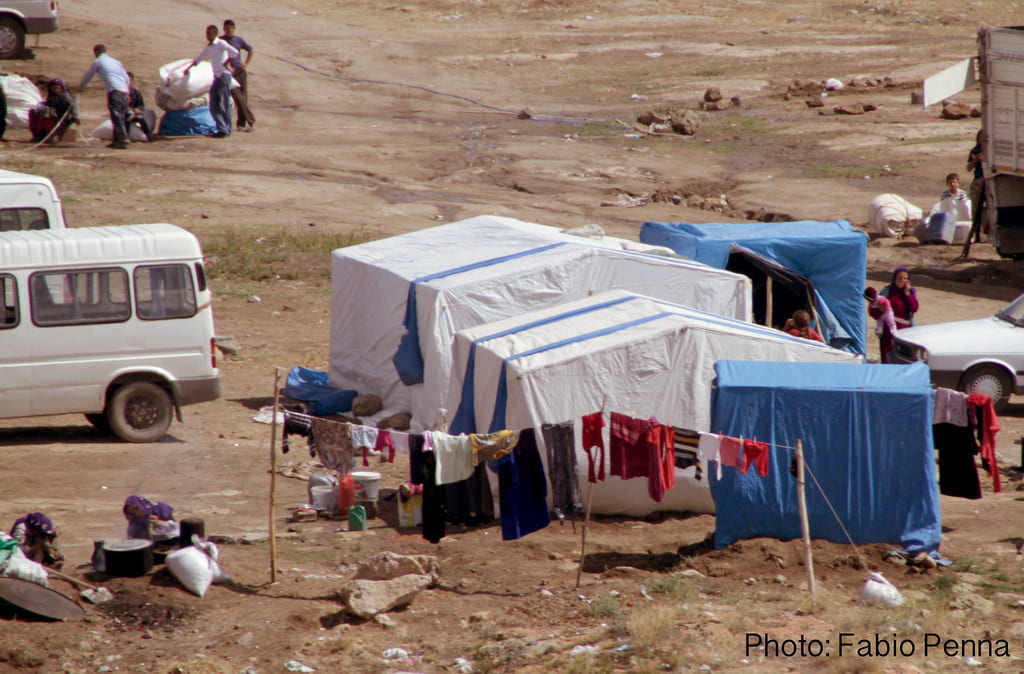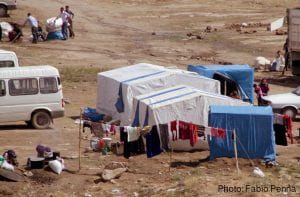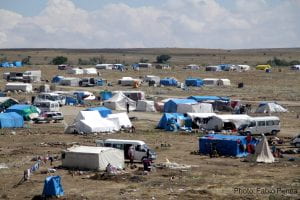An expansion to a natural gas pipeline is slated to begin construction in the fourth quarter of 2026, a project that the Southern Environmental Law Center (SELC) has called a “fossil fuel superhighway.” The proposed South System Expansion 4 project is a $3.5 billion pipeline expansion that would span 291 miles across Mississippi, Alabama, and Georgia. It has been proposed to upgrade the Southeastern United States’ energy grid, providing an additional 1.3 billion cubic feet of natural gas capacity per day. Kinder Morgan, the company presiding over the project, touts the market-driven demand for natural gas and the sustainable growth that the expansion will bring to the region. The SELC cites environmental and economic concerns, urging the federal government to take careful consideration of the adverse impacts that this pipeline expansion could have on the communities through which it passes.

Image One: Aerial view of pipeline. By: MelissaMN. Source: Adobe Stock. Asset ID#: 221316621
Federal Energy Regulatory Commission Process
The project is currently under review by the Federal Energy Regulatory Commission (FERC), which must issue a certificate of public convenience and necessity to construct any interstate natural gas pipeline. FERC accepted public comments that address potential hazards, externalities, alternatives, and relevant information regarding the project until October 6th. In a joint statement of protest, several organizations, including Alabama Rivers Alliance, Blackbelt Women Rising, and Energy Alabama, pointed out potential issues with the pipeline for FERC’s consideration. NYU Policy Integrity also urged FERC to consider environmental concerns in its decision.
ƒmodiSSE4 Environmental Impact Statement
Under the National Environmental Policy Act, an Environmental Impact Statement (EIS) outlining the potential externalities of any project under FERC’s jurisdiction is required. The joint protest issued by Alabama Rivers Alliance, Blackbelt Women Rising, Energy Alabama, and others urges FERC to fully consider the effects of 14 new natural gas pipeline loops on water quality, endangered species, air quality, and marginalized communities in its EIS. In an outline of the project, Kinder Morgan addressed environmental concerns; they claim that the project is “committed to protecting significant cultural sites and environmentally sensitive areas.” The overview explains the environmental considerations they will make before, during, and after the project’s conclusion. It states that the field surveys will be conducted to avoid sensitive areas, environmental inspectors will monitor the project as it progresses, and land will be re-seeded and restored after completion.
The joint protest raises additional concerns. Crossing rivers and streams using open-cut methods can increase the water’s total suspended solids and damage local ecosystems. Horizontal directional drilling causes erosion. The project would require 130 million gallons of water, which would require extraction that can cause “water-shed wide ecological stress.” It also mentions that “[o]ut of the 14 compressor stations being modified as part of this Project, only one compressor unit is slated to be electric.” These non-electric compressor stations produce harmful pollutants like nitrogen dioxide and volatile organic compounds. The pipeline will also run across Alabama’s Blackbelt region, which already deals with toxic coal ash, industrial wastewater, and other environmental injustices.

Environmental Justice and Public Health
As NYU Policy Integrity mentions, under a recent memorandum released by the Council on Environmental Quality, FERC is not required to examine environmental justice issues when considering a project’s potential harm and impact. This memorandum is in accordance with the January 2025 executive order Unleashing American Energy, signed by President Trump, which directs federal agencies to “expedite permitting approvals.” The memorandum adds that agencies “must prioritize efficiency and certainty over any other policy objectives.” However, FERC is still required to examine potential harms to the public, and the effects of the pipeline construction cannot be divorced from the local situation of the pipeline’s immediate impact area. The pipeline will cross through areas with higher concentrations of particulate matter than the national average. According to data collected from County Health Rankings and Roadmaps, the eleven Alabama counties that the project is projected to cross have an average of 8.9 micrograms per cubic meter of fine particulate matter in the air; the US average is 7.3. The prevalence of asthma among adults was also higher than the national average in each of the Alabama counties, according to 2022 CDC PLACES data. NYU Policy Integrity also lists elevated economic indicators of social vulnerability, including higher rates of poverty, near planned compressor stations. Given that the local populations already face health challenges linked to the environment, FERC’s consideration of the potential harms from the pipeline expansion should include the compounding effects of the pipeline’s construction in an area already impacted by environmental degradation.
FERC and Procedural Rights
FERC’s upcoming Environmental Impact Statement on the effects of the pipeline expansion represents environmental rights in action. Procedural rights, or the rights of people to participate in processes, are a cornerstone of environmental rights. The UN Environment Programme (UNEP) defines procedural rights as “access to information, public participation, and access to justice.” These rights are important for protecting the environment and upholding the rule of law. The UN’s 2019 Environmental Rule of Law report found that civic participation in environmental decisions in the US led to innovative, cost-effective solutions by adding information to analyses and reframing issues. The basis for these rights in international law comes from the 1992 Rio Declaration and the 1998 Aarhus Convention. The US is not a signatory to the Aarhus Convention, but the National Environmental Policy Act enshrines some of the same ideals in US law. The Environmental Impact Statement promotes public access to information, while the Joint Protest statement and NYU Policy Integrity’s report are examples of public participation. Access to justice is upheld when agencies like FERC take into consideration environmental injustices and hold companies to account.
Deregulation
Procedural and environmental rights at large may be in danger, as recent developments in US policy are clearing the path for the oil and gas industry at any cost. President Trump has championed a deregulatory agenda, notably withdrawing from the Paris Agreement and attempting to overturn the EPA’s 2009 endangerment finding. The Paris Agreement, adopted by 195 countries in 2015, set goals to reduce greenhouse gas emissions. Methane, a greenhouse gas, has a much higher global warming potential than carbon dioxide, and a recent review of scientific literature suggests that natural gas pipelines’ emission impacts have been underestimated. The EPA’s endangerment finding, released in response to the Supreme Court’s Massachusetts v. EPA ruling, found that under the Clean Air Act, the agency is required to place limits on greenhouse gas emissions. The endangerment finding treats greenhouse gases like other harmful chemical pollutants because they also endanger public health, though on a broader scale than localized pollutants.

Conclusion
The Southern Environmental Law Center opposes the South System Expansion 4 project in part because of the immediate effects on the communities located in its path, but also because it expands the reliance on natural gas while increasing energy bills for regular people. Executive director of Energy Alabama Daniel Tait claims, “Alabamians will be stuck with the bill for decades while utilities invest in fossil fuels instead of cheaper, cleaner alternatives.” However, Kinder Morgan’s vice president of public affairs, Allen Fore, argues that Alabama Power and the Southeast will benefit from the additional natural gas capacity.
As with any project on this scale, the South System Expansion 4 pipeline is controversial. It raises questions about sustainable development, corporate responsibility, and the federal regulatory process. Central to all energy developments should be the right of impacted communities to their health and well-being. Article 25 of the Universal Declaration of Human Rights outlines the right to an adequate standard of living, which the SSE4 puts at risk by polluting the surrounding area. FERC should listen to public comments and ensure that the project proceeds with the best interests–and the human rights–of the communities and the environment in mind.




